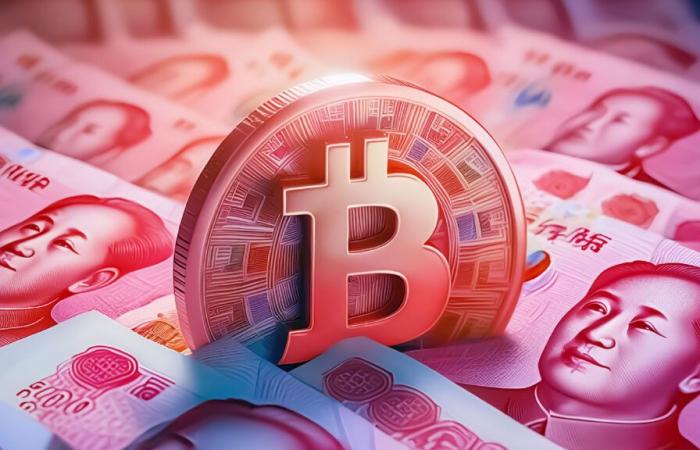Magic money shortage to self-pay debt. The central bank of the United States, the Fed, was already blowing the cold on the cryptocurrency sectorby pausing the reduction in its key rates. But the People’s Bank of China (PBoC) also seems to want to do the same against Bitcoin (BTC) and its ilk. In fact, the institution will put fin to its government bond buybacks.
- The People’s Bank of China has ended its purchases of government bonds, citing demand that outstrips supply, although the depreciation of the yuan appears the main motivation.
- This decision, which puts an end to an accommodative monetary policy, could put downward pressure on Bitcoin and crypto-assets.
The People’s Bank of China stops its purchases of government bonds
As several economic media reported on January 10, 2025, the People’s Bank of China decided tostop buying government bonds (bonds). Although the reason given is said to be due to “demand now exceeding supply” for these bonds, it would appear that the depreciation of the Chinese yuan is the real main cause.
Chinese fiat currency has notably continued to fall against the US dollar since the start of 2025. Likewise, rates on Chinese debt tended to fall too sharply.
“(…) The embarrassment of the authorities [chinoises] vis-à-vis the collapse of government bond yields, and the growing pressure of the depreciation of the yuan, [les a menés à stopper leurs achats d’obligations]. (…) »
Ken Cheung, Chief Asia Foreign Currency Strategist at Mizuho Bank Ltd
Chinese authorities hope to reduce pressure on the yuan (which increases pressure on Bitcoin)
Following the announcement of this cessation of purchases of bonds by the PBoC, the yields of these Chinese government bonds have increased according to Bloomberg: “the five-year rate has gained up to eight basis points, and the ten-year rate gained four basis points to reach 1,675 % » (the latter had previously lost 1% in 12 months).
These sovereign debt buybacks were seen (rightly) as a accommodative monetary policy of the Chinese central bank. What disadvantages the currency fiat local for the benefit of the assets known as “ risk-on » , like stocks or cryptocurrencies.
The present tightening of the PBoC’s monetary policy will therefore tend to put a bearish pressure on Bitcoin and crypto-assets. Of course, this is far from the only factor to take into account, especially with the aspect universal and global of Bitcoin. But already, just in China, other factors, bulls these will be at work. Indeed, if mainland China officially shuns cryptos (unofficially, it is less certain), the special administrative region of Hong Kong wants to be very pro-active and constructive on the regulation of Bitcoin and its sector.







